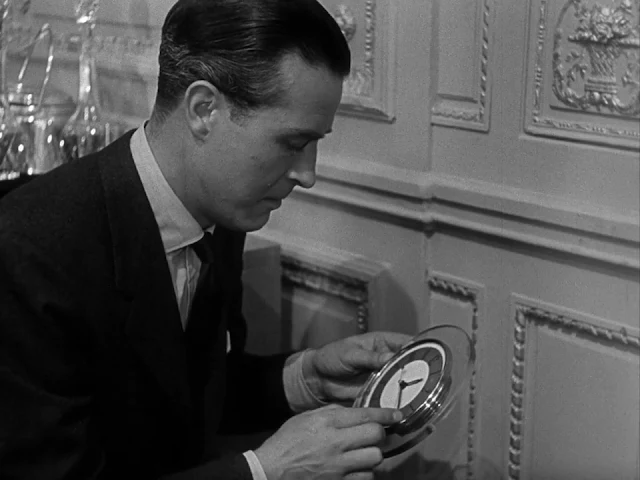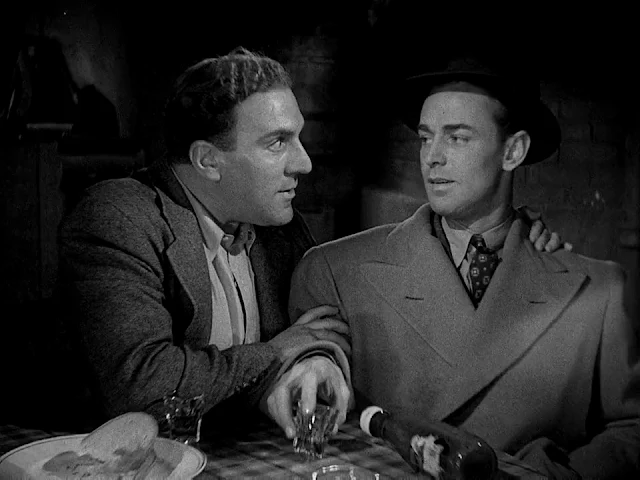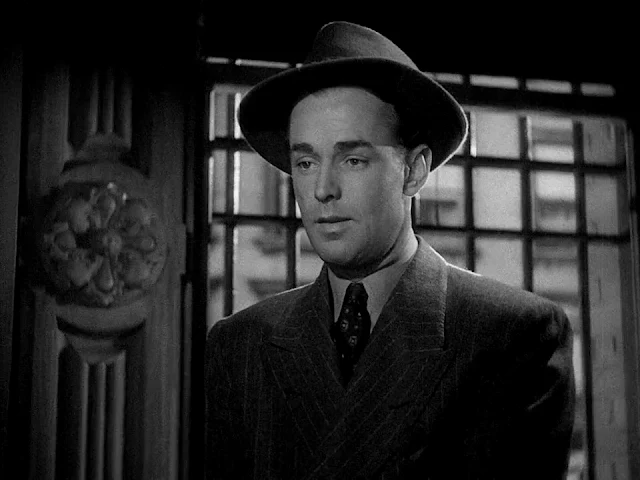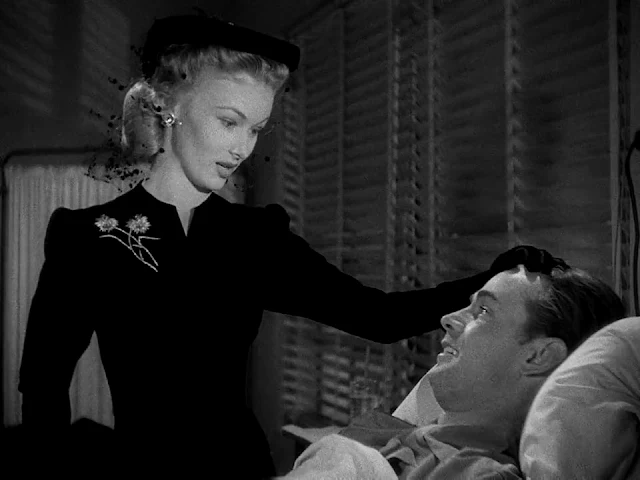The Big Clock (John Farrow, 1948)
Cast: Ray Milland, Charles Laughton, Maureen O'Sullivan, George Macready, Rita Johnson, Elsa Lanchester, Harold Vermilyea, Dan Tobin, Harry Morgan.
Screenplay: Jonathan Latimer,
based on a novel by Kenneth Fearing.
Cinematography: Daniel L. Fapp, John F. Seitz.
Art direction: Roland Anderson, Hans Dreier, Albert Nozaki.
Film editing: LeRoy Stone.
Music: Victor Young.
The Big Clock is a satisfying blend of suspense and comedy of the kind often called "Hitchcockian," which usually means it would probably have been even better if Hitchcock had directed it. But since he didn't, it's worth admiring what director John Farrow and screenwriter Jonathan Latimer did with the material provided them by Kenneth Fearing's novel. Fearing had worked at
Time magazine when Henry Luce was head of that publishing empire, so it's clear that he had Luce in mind when he created the imperious Earl Janoth, played with mustache-stroking glee by Charles Laughton in the film. So there's a substratum of satire on publishing moguls like Luce -- a breed that still exists in our day, embodied by Rupert Murdoch. (And still attracts satire,
viz., HBO's
Succession.) The plot centers on another Hitchcockian trope, the Wrong Man. In this case, the object of suspicion is George Stroud, editor of one of Janoth's properties, a true crime magazine called
Crimeways. Ray Milland plays Stroud, a hard-charging journalist who feels trapped in Janoth's empire. Eventually, through a well-set-up series of coincidences, Stroud finds himself investigating a murder in which he becomes the chief suspect, even though it was actually committed by no less than Janoth. There are domestic complications, too, involving Stroud's wife, a thankless role nicely played by Maureen O'Sullivan. The victim is Janoth's mistress, with whom Stroud has become involved because she suggests she has dirt on Janoth that Stroud can use to his advantage. The film handles all of these plot snarls with finesse, one of the rare instances in which knowing whodunit from the outset doesn't detract from the suspense. Censorship blunts some of the edges: In the novel, Stroud's marriage was less happy and his involvement with the victim more intimate. Janoth's bisexuality was also more explicit in the source -- in the film it's suggested when we see Janoth receiving a massage from his bodyguard, played silently by Harry Morgan, who remains a brooding presence in the background of other scenes. The film is enlivened by a gallery of mostly comic secondary characters, including Elsa Lanchester as a giddy artist whose works Stroud for some reason collects.

















































